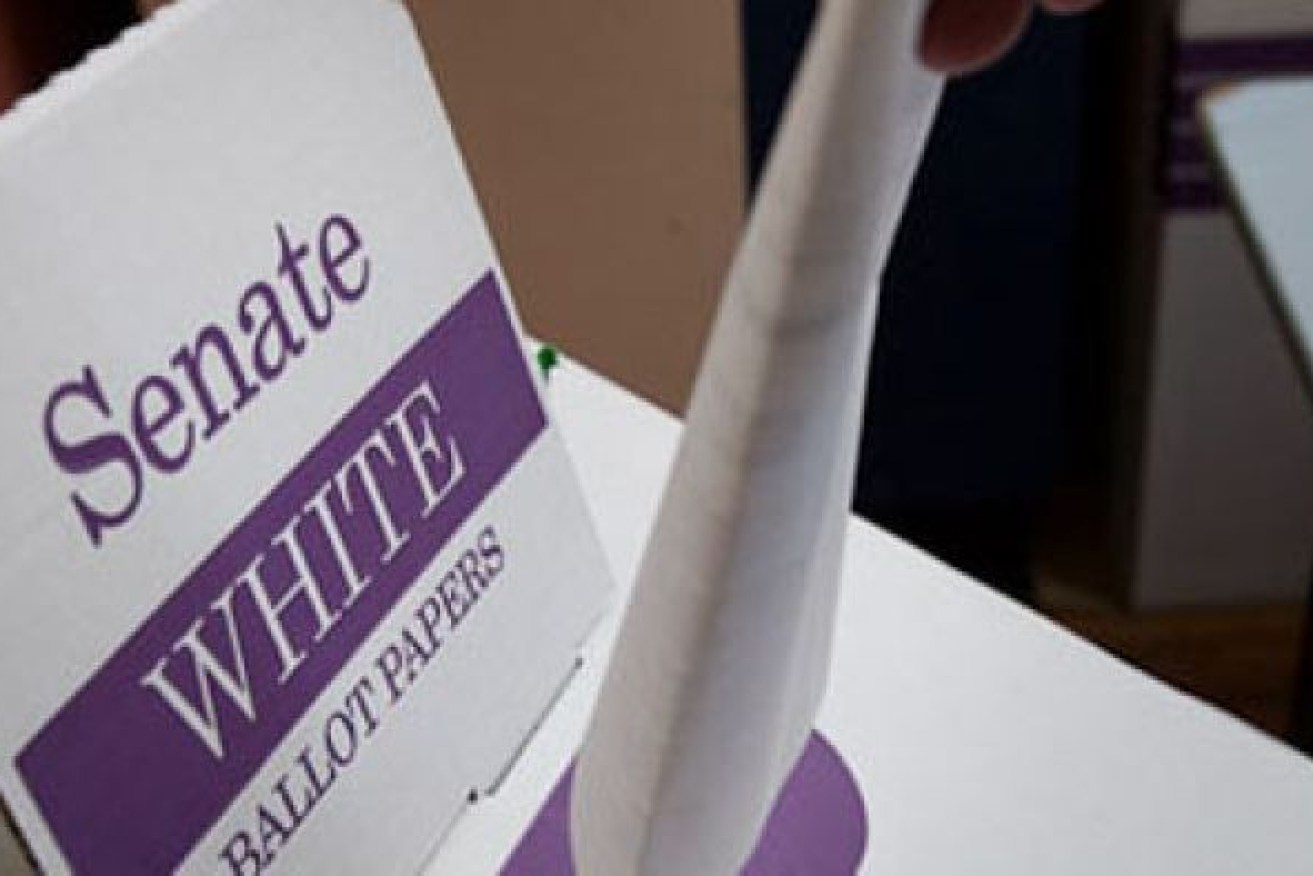Electoral Commission slams voting misinformation on Dominion counting machines


The Labor and Liberal parties are scrambling to fill candidate vacancies in key federal seats.
The Australian Electoral Commission has blasted “misinformation” emanating from a former One Nation senator, who has spread false claims that American ballot machines at the centre of a Donald Trump conspiracy theory would be used in the next federal poll.
The AEC raised the alarm on “ill-informed” commentary on Australia’s electoral system before the next election, after spending the week directly refuting claims that automated voting machines were on the way.
“We’re not using them, we’ve never proposed using them and there are no plans to use them,” the AEC said on Twitter.
AEC debunks Dominion ‘voting machine’ conspiracy
The commission’s social media team has been kept busy this week after claims from Rod Culleton, a former One Nation senator, that the AEC planned to “acquire ‘Dominion Voting Systems’ machines”.

Rod Culleton. Photo: AAP
On Sunday, Mr Culleton claimed to his 96,000 followers on Facebook, 11,000 on Telegram and 3500 on Twitter that the AEC was “proposing the use of the same Dominion Voting Systems machines to count votes that are being used in America”.
“You know the voting machines where the integrity of these machines is being questioned,” he wrote, claiming it was “another attack on our democracy”.
But Mr Culleton’s claim was based on a parliamentary report from four years ago. It recommended an electronic counting trial that never occurred.
Dominion, which produces computer programs and machines to count votes, has been at the centre of numerous baseless and debunked conspiracy theories around the 2016 US election.
Supporters of former president Donald Trump falsely claimed the company had “rigged” the election.
In March, Dominion announced plans for multibillion-dollar defamation suits against Fox News and several Trump associates.

Mr Culleton’s tweet.
Mr Culleton’s claims were seen by tens of thousands of people, and shared by groups linked to Australia’s anti-lockdown and anti-vaccine protests.
But despite Mr Culleton claiming the news was “BREAKING” in his Facebook post, the report he referred to was actually published in 2017, following the 2016 election.
That report recommended “a trial to test the scanning and electronic counting of House of Representatives ballot papers.”
However, the AEC said that trial never happened – and that current Australian electoral laws wouldn’t even allow for such a trial.
“[The trial] did not occur and it won’t happen as the legislation doesn’t allow for it,” an AEC spokesman told The New Daily.
The spokesman said the AEC has “never had any relationship with Dominion”.
TND contacted Dominion for comment.
How does the AEC count votes?
“Regardless of the veracity of the claims in the US, it is important to clarify that the AEC is not using Dominion as a provider at the next federal election,” the AEC spokesman said.

The AEC said votes are counted by hand. not machine. Photo: AAP
The AEC’s system of counting votes is “entirely manual” and conducted with pencil and paper, with no electronic voting.
The vote counting system for the Senate is “semi-automated”, the spokesman said, due to “complexities of the Senate voting system”, but every preference is verified by a human operator and subject to scrutineers.
The House of Representatives counting process is also “entirely manual”.
“There would need to be a significant level of legislative change for the voting system to allow for electronic voting and, while this is a matter for Parliament, it does not appear to be on the horizon,” the AEC spokesman said.
AEC’s social blitz
When contacted by TND, Mr Culleton said “I make no claim(s)” and that he was “simply sharing un-revoked information currently on the parliamentary website”.
But his claims were shared widely across social media, with numerous people directly attacking or criticising the AEC across Facebook and Twitter.
AEC staff have spent much of the past few days patiently responding to dozens of people, to clarify that Australia’s election counts remain manual and Dominion wouldn’t be used.

The AEC’s Facebook response to Mr Culleton.
“We are absolutely not doing this. This is a persistent but very incorrect piece of misinformation,” the AEC told one critic on Twitter.
“Short story – not happening,” it told another.
The AEC even posted a long response directly to Mr Culleton on Facebook, calling his claims “incorrect”.
Mr Culleton was elected as a One Nation senator for Western Australia in July 2016.
He later quit the party and sat as an independent for a short time.
In January 2017, he was removed as a senator over a bankruptcy issue, which he disputed.
The next month, the High Court found he was ineligible to be elected in the first place, owing to unrelated larceny charges.
He formed his own party, the Great Australia Party, in 2019.
Earlier this year, Mr Culleton announced controversial former celebrity chef Pete Evans would run for the party at the next federal election.
The AEC said in July it was considering deregistering the Great Australia Party, under section 137(a) of the Electoral Act.
That clause gives the AEC the power to deregister a party if it is “satisfied on reasonable grounds” a party “has ceased to exist”, potentially due to lack of members.
Disinformation fears for next election
Outside of this specific case, there are fears among some in the political class that disinformation aimed at undermining or criticising the electoral system, as seen in the American election, could find its way Down Under.
Australia is due for a federal election by May 2022.
The AEC said it was worried about growing levels of political misinformation online, and was working to combat it.
The commission will run anti-disinformation campaigns on social media, including a series of YouTube videos on election integrity measures.
“Ill-informed (and often flat-out wrong) speculation about the integrity of the electoral process harms Australia,” the spokesman said.
“We’re taking steps to educate Australians and will be quite active in responding to any disinformation concerning the election process.”
COVID restrictions and concerns could potentially encourage more people to use postal voting, rather than lining up at a polling place.
The AEC said it was also strengthening its “robust postal voting process” to deal with a higher-than-usual number of such votes.
“We are, of course, conscious of the potential for an increase in the number of postal votes at the forthcoming federal election due to the pandemic and are catering for this,” the spokesman said.








